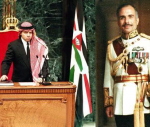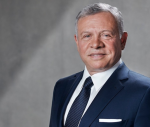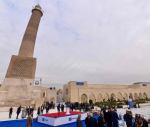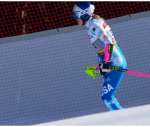You are here
A tragedy and a wake-up call
Mar 17,2021 - Last updated at Mar 17,2021
Empathy. Humility. Compassion. Sympathy. Kindness. Those are some of the attributes that come to mind when we think of healthcare professionals. The medical experience between a doctor and a patient may be one of the most humane experiences in our lifetimes. Patients trust doctors with their most valuable asset — their health — in what could be one of their most vulnerable encounters of their time on this earth. In return, doctors have sworn to give a patient everything they have to offer; to go above and beyond to augment their quality of life and offer them care like no one else can. Very simply put, a doctor and a patient share a meaningful relationship that embodies the essence of vulnerability and human compassion. This relationship characterises human beings as cognitively functioning species exchanging emotions in defenseless states.
It saddens me — alongside millions of Jordanians around the globe — to see this beautiful exchange of emotions, trust and vulnerability losing its meaning with this chaotic state that resulted from the widespread greed of given individuals in our beloved country. The tragedy witnessed in Al Salt, which resulted in the loss of our brothers and sisters, is the result of years and years of institutional corruption and a compilation of wrong decisions. The pandemic did not cause the healthcare system to collapse — it merely highlighted gaps in the system that we have the responsibility to address in the future.
The pandemic illustrated to us that our health system is not functioning optimally, and that it is up to us how we react now. There is nothing more tragic than having a beautiful experience, bringing together a doctor and a patient, become an ugly memory in the minds of many Jordanians. If we lose the meaning of this heartfelt encounter, we lose what makes us human: Compassion, humility and empathy.
The tragic incident highlighted that we cannot afford corruption, dereliction and negligence in healthcare. The reason is a simple one — lives are at stake. The doctor’s work against sickness does not begin with genetic or cellular interactions, but with human ones. Similarly, everyone in charge of running a hospital system, regardless of their position within the hierarchy, must work every day with the humane aspect of medicine in mind. A medical equipment technician shares the same responsibility as a doctor, and so does a hospital manager or a janitor. No well-functioning society can operate without an adequate health system. The change begins today — personified by His Majesty’s relentless efforts to investigate the incident. Similarly, we must view this tragedy as a call for change across all sectors, especially healthcare, where the cost of making mistakes is too large.
Today, I join millions of Jordanians in mourning the loss of our brothers and sisters. But I write today with a different aspiration than the usual — I write as a reminder that medicine is characterised by empathy and compassion. And during these difficult times, we need empathy and compassion more than ever. Finally, I write as a message for everyone involved in any capacity in the healthcare system to say that your work impacts other humans, regardless of how major or minor your role is within a healthcare institute. The quality of work can quite literally save lives, and for that, you must do your work diligently.
Let us mourn — and let this mourning be our inspiration to take the first steps in renavigating our healthcare system starting with adequately doing our jobs and holding those in charge responsible for what occurred — let us do that for one simple reason: Our beloved Jordan deserves better. And for that, we must do better.
The writer is a Public Health Researcher at the Columbia University Mailman School of Public Health in New York City and a medical student at New York Medical College. He contributed this article to The Jordan Times












